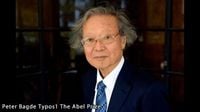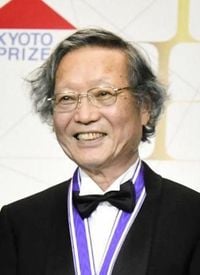In a historic achievement for Japan, Masato Kashiwara, a 78-year-old specially appointed professor at Kyoto University, has become the first Japanese recipient of the prestigious Abel Prize, often referred to as the Nobel Prize of mathematics. This recognition was announced on March 26, 2025, and it marks a significant milestone in the field of mathematics for both Kashiwara and Japan.
Kashiwara is celebrated for establishing the theory of 'D-modules', which plays a crucial role in algebraic analysis. The Norwegian Academy of Science and Letters, which awards the Abel Prize, praised Kashiwara for having proven remarkable theorems using methods that were previously unimaginable, calling him "a true mathematical visionary." This accolade is not just a personal triumph but also a testament to the contributions of Japanese mathematicians on the global stage.
The Abel Prize ceremony is scheduled to take place in Oslo, Norway, on May 20, 2025. The award comes with a prize of 7.5 million Norwegian kroner, approximately 100 million yen, underscoring the significance of this honor in the mathematical community.
Reflecting on his journey, Kashiwara shared that his fascination with mathematics began in childhood. At the age of 10, he was captivated by a type of arithmetic problem known as Tsurukame算, which involves calculating the number of cranes and turtles based on the total number of heads and legs. This early interest laid the foundation for his lifelong pursuit of mathematics.
Kashiwara was born in 1947 in Yuki City, Ibaraki Prefecture. His academic journey led him to the University of Tokyo, where he completed his master's degree in 1971. Afterward, he held various academic positions, including assistant professor at Kyoto University and associate professor at Nagoya University, before achieving his current role at Kyoto University.
Throughout his career, Kashiwara has made significant contributions to the fields of algebraic analysis and representation theory. His work on D-modules, established when he was just 23 years old, had a profound impact on mathematics, despite being initially published only in Japanese. His theories have influenced a wide range of mathematical disciplines and continue to inspire researchers worldwide.
The Norwegian Academy highlighted Kashiwara's collaborative spirit, noting that he has worked alongside numerous mathematicians throughout his career. The academy stated, "He remains at the forefront of modern mathematics, inspiring generations of researchers." This acknowledgment reflects the importance of collaboration and mentorship in the advancement of mathematical knowledge.
Kashiwara's accolades include not only the Abel Prize but also the Kyoto Prize, which he received in 2018. His accomplishments are a source of pride for Japan, particularly as the Abel Prize is considered one of the most prestigious awards in mathematics, established in honor of the 19th-century Norwegian mathematician Niels Henrik Abel. Unlike the Fields Medal, which is restricted to mathematicians under the age of 40, the Abel Prize has no age limit, allowing for recognition of mathematicians at any stage of their career.
In a video released after the award announcement, Kashiwara expressed his astonishment at receiving such a prestigious honor for research conducted over 50 years ago. He stated, "I am happy that my research from more than 50 years ago is being recognized. I never expected this and am very surprised." His humility and gratitude resonate with many in the academic community, who recognize the dedication and hard work that often goes unnoticed until significant achievements are acknowledged.
The Abel Prize not only celebrates individual accomplishments but also highlights the importance of mathematics in addressing complex challenges in society. As the world faces increasingly intricate problems, the contributions of mathematicians like Kashiwara are essential in providing solutions and advancing knowledge.
As the mathematical community prepares to celebrate Kashiwara's achievement, it also serves as a reminder of the rich history of mathematics in Japan and the potential for future breakthroughs. Kashiwara's journey from a young boy intrigued by arithmetic to a leading figure in mathematics exemplifies the power of curiosity and dedication.
In conclusion, Masato Kashiwara's recognition as the first Japanese recipient of the Abel Prize is a landmark event that not only honors his individual contributions but also shines a light on the advancements in mathematics originating from Japan. His story is one of inspiration, demonstrating how passion and perseverance can lead to groundbreaking discoveries that shape the future of mathematics.







